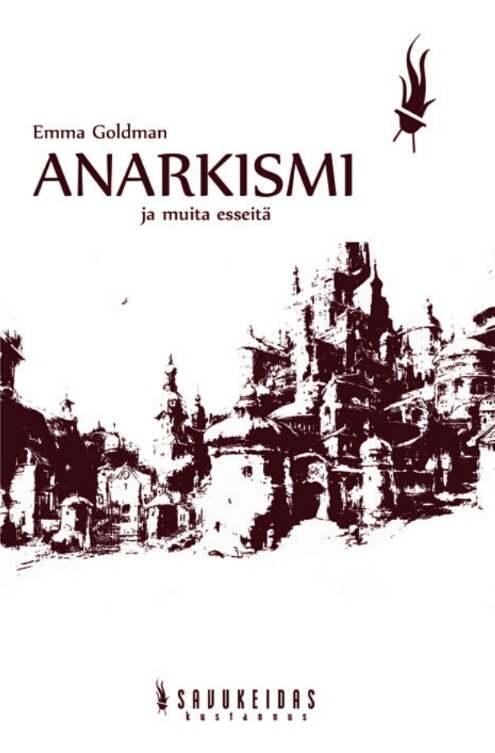What do you think?
Rate this book


290 pages, Paperback
First published January 1, 1910
Chapter 1: Anarchism: What It Really Stands for
Chapter 2: Minorities Versus Majorities
Chapter 3: The Psychology of Political Violence
Chapter 4: Prisons: A Social Crime and Failure
Chapter 5: Patriotism: A Menace to Liberty
Chapter 6: Francisco Ferrer and the Modern School
Chapter 7: The Hypocrisy of Puritanism
Chapter 8: The Traffic in Women
Chapter 9: Woman Suffrage
Chapter 10: The Tragedy of Woman’s Emancipation
Chapter 11: Marriage and Love
Chapter 12: The Modern Drama: A Powerful Disseminator of Radical Thought
"A thorough perusal [Goldman has not done as much as a glance] of the history of human development will disclose two elements in bitter conflict with each other; elements that are only now beginning to be understood, not as foreign to each other, but as closely related and truly harmonious, if only placed in proper environment: the individual and social instincts. The individual and society have waged a relentless and bloody battle for ages, each striving for supremacy, because each was blind to the value and importance of the other. The individual and social instincts,—the one a most potent factor for individual endeavor, for growth, aspiration, self-realization; the other an equally potent factor for mutual helpfulness and social well-being."
"Anarchism is the only philosophy which brings to man the consciousness of himself [It is the biggest "philosophy" which distracts working people from consciousness with middle class delusions]; which maintains that God, the State, and society [Agreeing with Miss Thatcher, are we? Now that's radical!] are non-existent, that their promises are null and void, since they can be fulfilled only through man's subordination. Anarchism is therefore t1he teacher of the unity of life; not merely in nature, but in man. There is no conflict between the individual and the social instincts, any more than there is between the heart and the lungs: the one the receptacle of a precious life essence, the other the repository of the element that keeps the essence pure and strong. The individual is the heart of society, conserving the essence of social life; society is the lungs which are distributing the element to keep the life essence—that is, the individual—pure and strong."
Again, Goldman's claims that her glorious intellect, above the ignorant masses, goes "to the bottom of things", are dashed when it's clear that she doesn't even go to the bottom of her own essays. The ridiculous suggestion that "society [is] non-existent", does this not contradict that"[t]he individual and society have waged a relentless and bloody battle for ages, each striving for supremacy, because each was blind to the value and importance of the other"? If Society is "non-existent", then please let me ask: what has the individual been fighting all this time? And how can something that does not exist "strive for supremacy" over something else that does exist?
The relation between the writer and the reader is more intimate. True, books are only what we want them to be; rather, what we read into them. That we can do so demonstrates the importance of written as against oral expression. It is this certainty which has induced me to gather in one volume my ideas on various topics of individual and social importance. [...] I am not sanguine enough to hope that my readers will be as numerous as those who have heard me. But I prefer to reach the few who really want to learn, rather than the many who come to be amused.